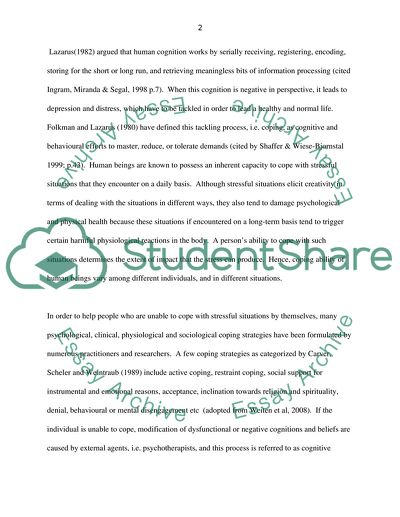Cite this document
(The Emotional Correlates of Stressful Events Literature review, n.d.)
The Emotional Correlates of Stressful Events Literature review. Retrieved from https://studentshare.org/psychology/1563698-all-coping-behaviours-have-one-overall-purposethat-of-dealing-with-the-emotional-correlates-of-stressful-events-and-creating-a-sense-of-control-critically-discuss-this-statement-with-specific-reference-to-counselling-practice
The Emotional Correlates of Stressful Events Literature review. Retrieved from https://studentshare.org/psychology/1563698-all-coping-behaviours-have-one-overall-purposethat-of-dealing-with-the-emotional-correlates-of-stressful-events-and-creating-a-sense-of-control-critically-discuss-this-statement-with-specific-reference-to-counselling-practice
(The Emotional Correlates of Stressful Events Literature Review)
The Emotional Correlates of Stressful Events Literature Review. https://studentshare.org/psychology/1563698-all-coping-behaviours-have-one-overall-purposethat-of-dealing-with-the-emotional-correlates-of-stressful-events-and-creating-a-sense-of-control-critically-discuss-this-statement-with-specific-reference-to-counselling-practice.
The Emotional Correlates of Stressful Events Literature Review. https://studentshare.org/psychology/1563698-all-coping-behaviours-have-one-overall-purposethat-of-dealing-with-the-emotional-correlates-of-stressful-events-and-creating-a-sense-of-control-critically-discuss-this-statement-with-specific-reference-to-counselling-practice.
“The Emotional Correlates of Stressful Events Literature Review”, n.d. https://studentshare.org/psychology/1563698-all-coping-behaviours-have-one-overall-purposethat-of-dealing-with-the-emotional-correlates-of-stressful-events-and-creating-a-sense-of-control-critically-discuss-this-statement-with-specific-reference-to-counselling-practice.


